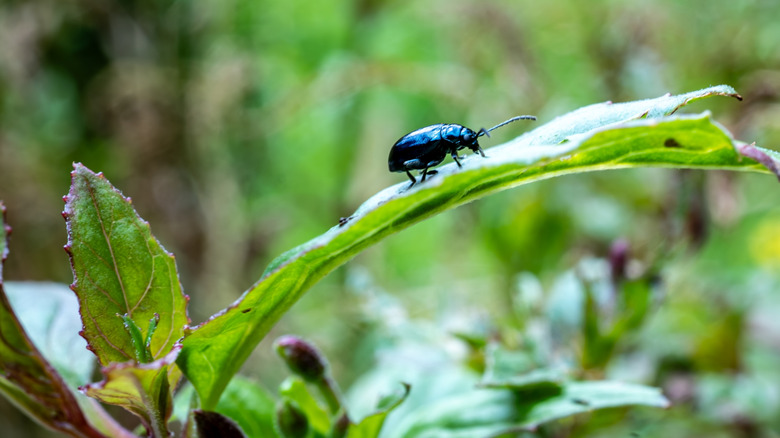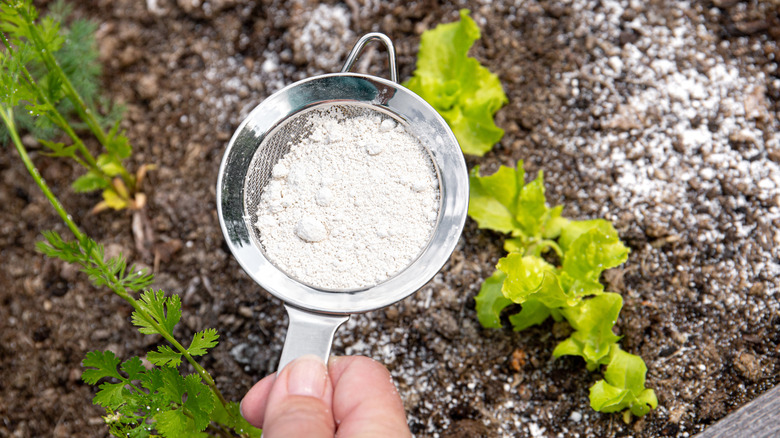The Surefire Way To Keep Pesky Flea Beetles Away From Your Garden Plants
As an umbrella term, flea beetles include a broad number of beetle species that can be detrimental to the health of your garden. The nasty little bugs can wreak havoc on a garden, especially when young plants are sprouting. But luckily, there's an easy way to get rid of them for good: diatomaceous earth. If you're not familiar with diatomaceous earth and what it's used for, this natural substance (made from fossilized single-celled algae organisms called diatoms) works as a natural insecticide that will help keep flea beetles from destroying your garden.
Before you go reaching for chemical pesticides, try this natural method of removing flea beetles from your garden. Diatomaceous earth has microscopic spikes and ridges that scratch insects as they crawl over it, damaging their exoskeletons and causing dehydration. The flea beetles will eventually die out, then, with some quality care and soil treatment, you can be sure they will stay away for good. The best part is, the entire process is completely natural and does not use any synthetic pesticides, chemicals, or extensive labor. However, it is important to apply it with care to prevent damage to the biodiversity in your garden by accidentally killing your beneficial insect population.
How to use diatomaceous earth to safely eradicate flea beetles
First and foremost, make sure you select the correct type of diatomaceous earth. For garden pests, you will want to select food-grade quality. Never use pool-grade diatomaceous earth in your garden. It will not kill the pests and could be harmful if accidentally consumed by humans. Use the food-grade quality diatomaceous earth to take care of these pests by applying it to the soil near the affected plants on a dry day. Take care to cover the entire affected area. It is important to avoid dusting the actual plants themselves and other areas that pollinators might be attracted to. Because diatomaceous earth affects all insects the same way, it could also harm your bees, butterflies, and other helpful insects.
After reducing the flea beetle population, you can take measures to prevent future infestations. After it rains or you water your garden, the diatomaceous earth will no longer have an impact. You could keep applying it, but then you risk deterring helpful insects. Instead, treat your garden with neem oil, a natural pesticide that prevents future flea beetle infestations. Partner these treatments with healthy gardening practices like using quality fertilizer and regular watering. This can encourage natural pest control through the use of helpful organisms like nematodes.

